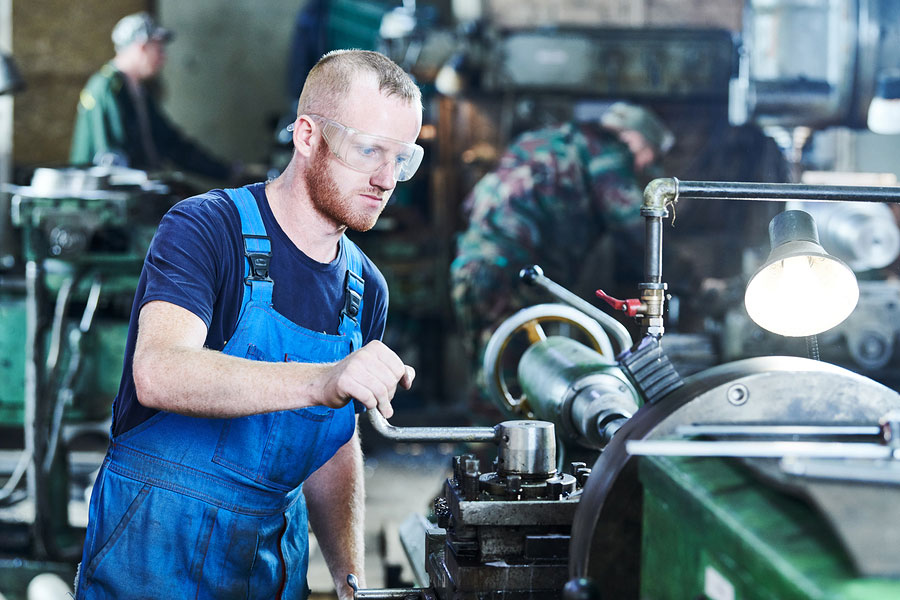Metal stamping is an important manufacturing process that transforms sheet metal into flexibly designed, custom, cost-efficient parts with tight tolerances. Metal stamping is used in a wide range of industrial applications including aerospace, automotive, electronics, medical, telecommunications, agriculture and military. This much-in-demand industry continues to see stamping improvements including design simulation.
The advantages of metal stamping, more accurately referred to as precision metal stamping, are production cost-efficiency, less scrap material, high quality and superb accuracy, all wrapped into a highly automated process.
The Metal Stamping Process
Metal stamping simply transforms flat sheet metal into different shapes. The process involves feeding sheet metal blanks into a stamping press. The press uses a tool and die surface to form the metal using significant pressure. Metal stamping processes include punching, blanking, embossing, coining, bending and flanging. The forming process can involve a sequence of stamping stations, known as progressive stamping. It can also involve separate machines, known as transfer stamping. Or, it can use a multiple formation process known as four-slide stamping. In all cases, materials used may range from precious metals such as silver and gold to ferrous metals like stainless steel, or to non-ferrous metals, such as bronze and brass.
In some cases, production designs are based on the use of existing dies for production of standard shapes and bends. In all cases, design consideration is made for the material to be used, the specific size, shape and function of the end products. Blueprints, sketches and design specifications are used in the development design and production of the dies to be used before the fabrication process begins.
Typically, a successful production run will begin with a prototype, which offers these advantages over direct production, resulting in a savings of time and money:
- Eliminates any unnecessary features.
- Reveals item design problems or weaknesses.
- Helps to eliminate unforeseen mistakes.
- Decreases the need for later design or engineering changes.
Metal Stamping Simulation Offers Improvements
Metal stamping simulation offers stamping improvements. Simulation utilizes software to “virtually” work with the forming process of any sheet metal part, so that tool and design makers can avoid the time and expense of making a physical tool. It prospectively creates the proposed sheet process and can predict possible defects thus creating optimum design specifications.
Simulation offers these benefits:
- Complete process design or partial layout.
- Identification of material forming or thinness limitations.
- Optimum tooling surfaces.
- Forming forces and spring-back analysis.
- Pre-development of blank shapes.
Importantly, simulation allows engineers to test multiple design iterations to evaluate part performance and to avoid problems–anywhere from ten to 40 different iterations of a simulation. And, data from the simulation provides clear evidence of manufacturability. Stamping improvements are a direct result.
Simulation is a clear way to maximize investment in production. In the manufacturing industry where lead time to market, product cost and highly efficient manufacturing costs are increasingly important, simulation is an important path to success.
As a case in point, the highly competitive automotive industry has employed simulations to help with their increasing focus on fabricating cars using materials lighter than traditional steel.
Seek Proven Expertise for Your Precision Metal Stamping Needs
Contact Velocity Metalworks, serving the Greater St. Louis area and the Midwest. We have been recognized as a valued partner in the metal stamping industry for our strong tool design and build competency. With our metal stamping capacity, precision machining services and EDM capability, we provide the superior experience, precision and quality you can depend on.

